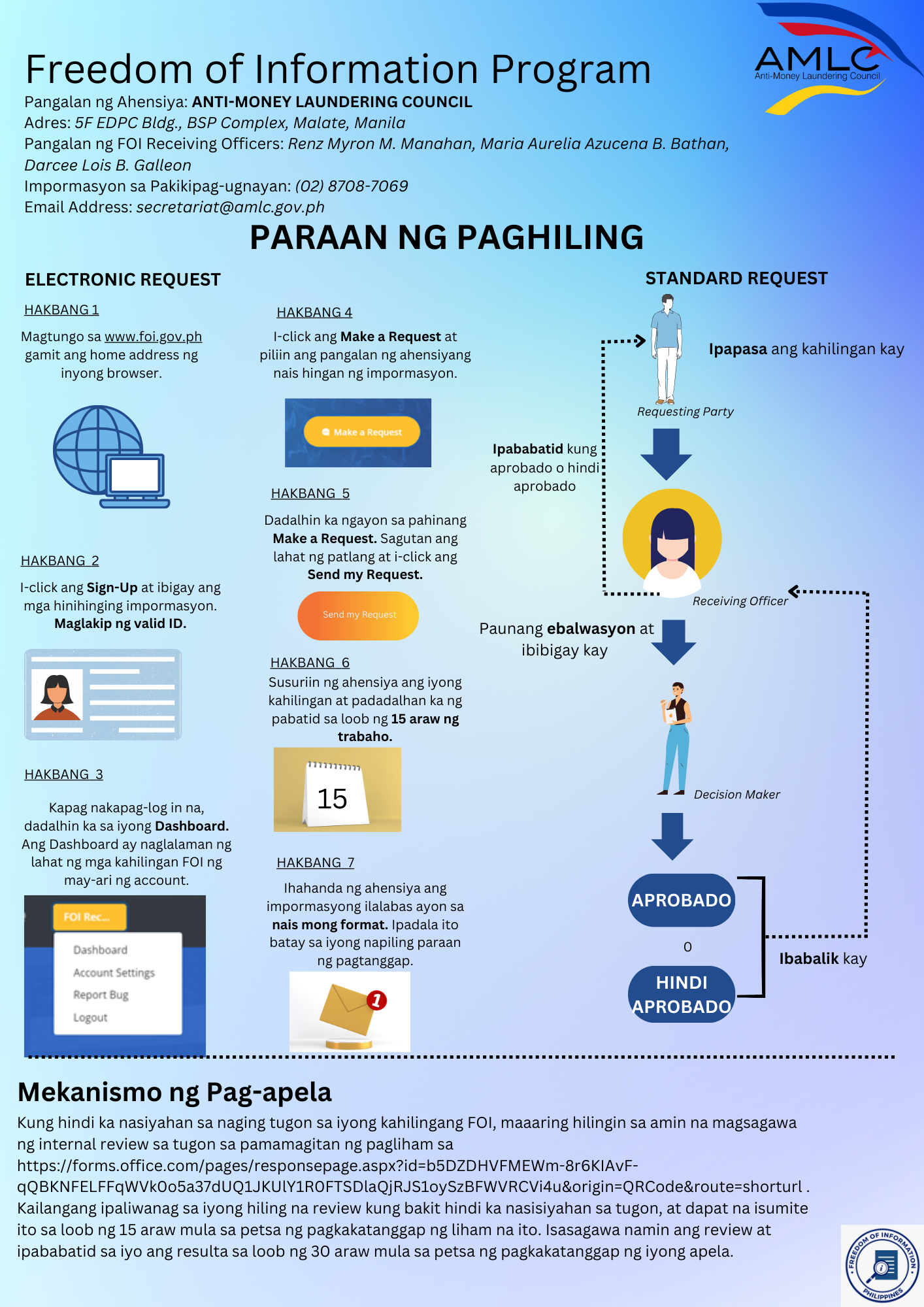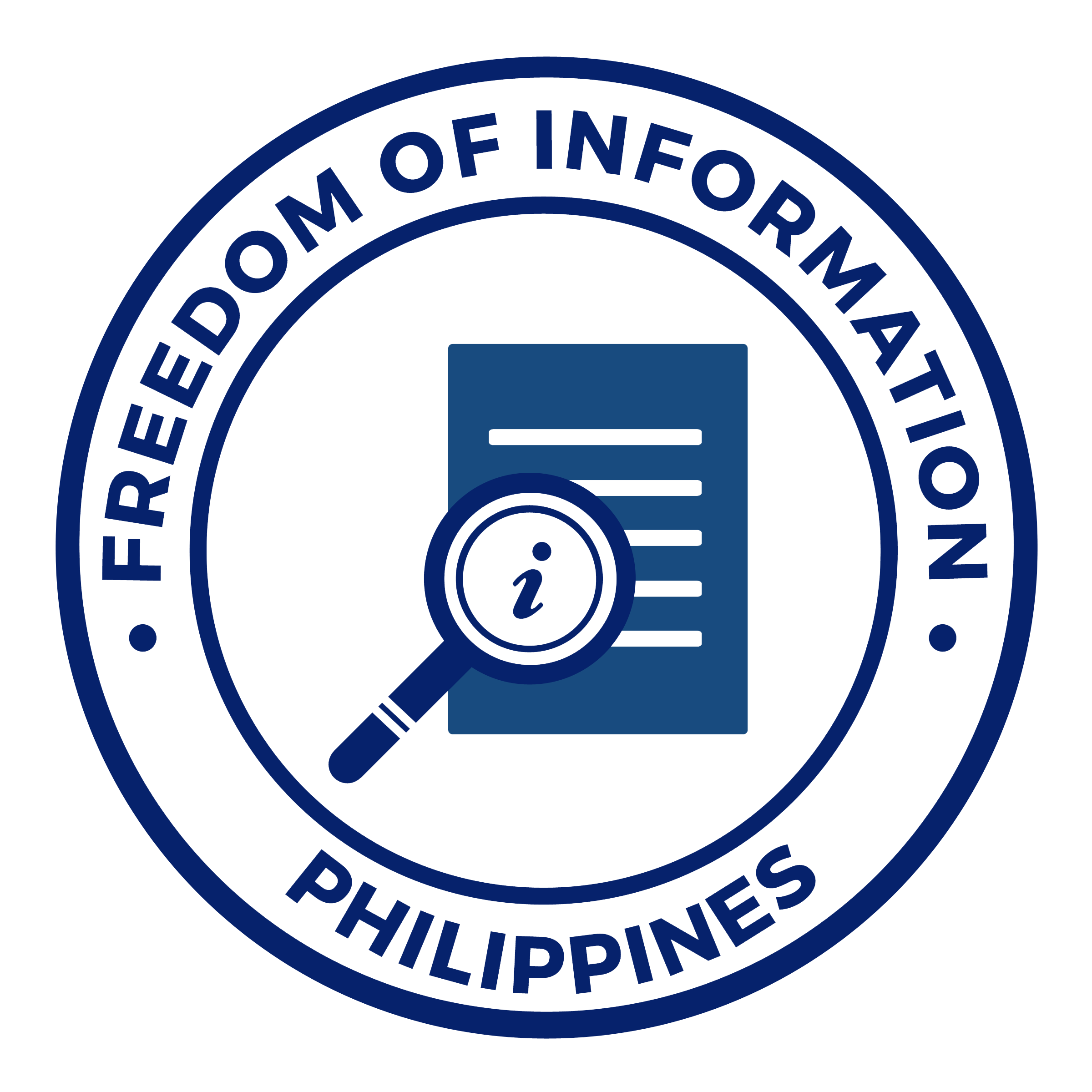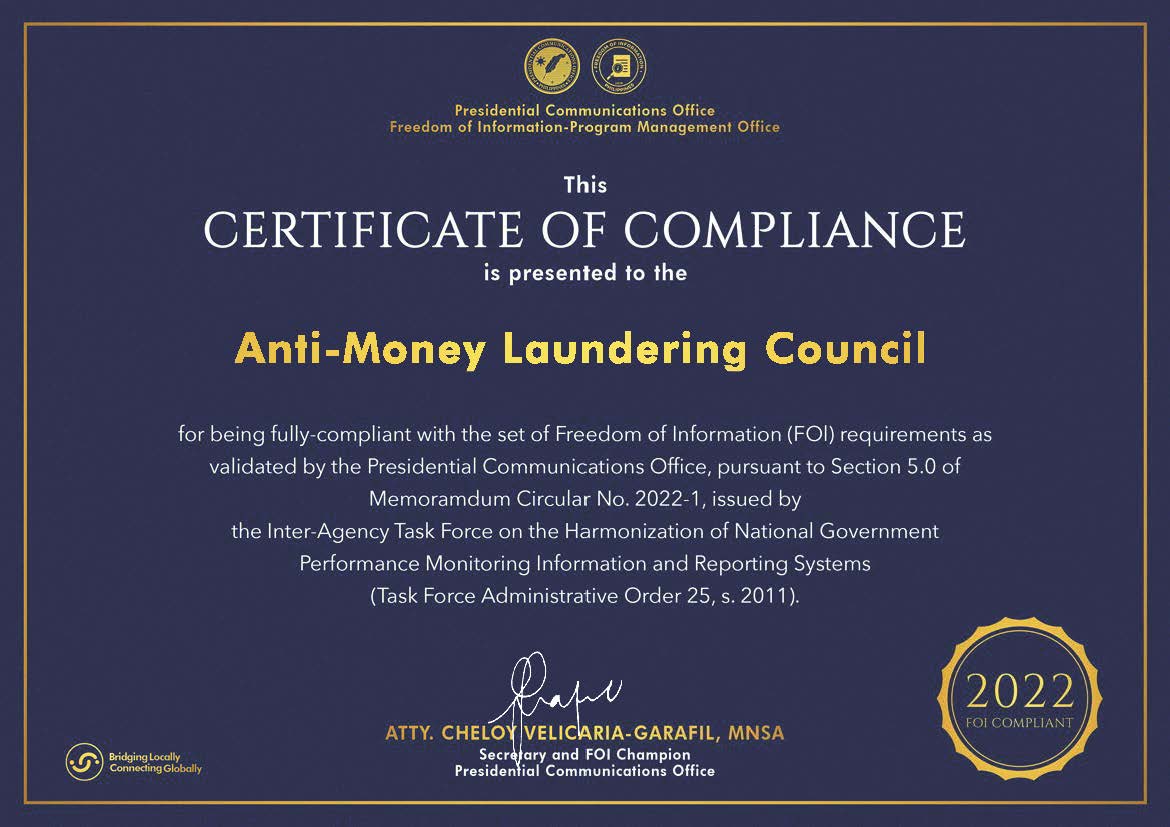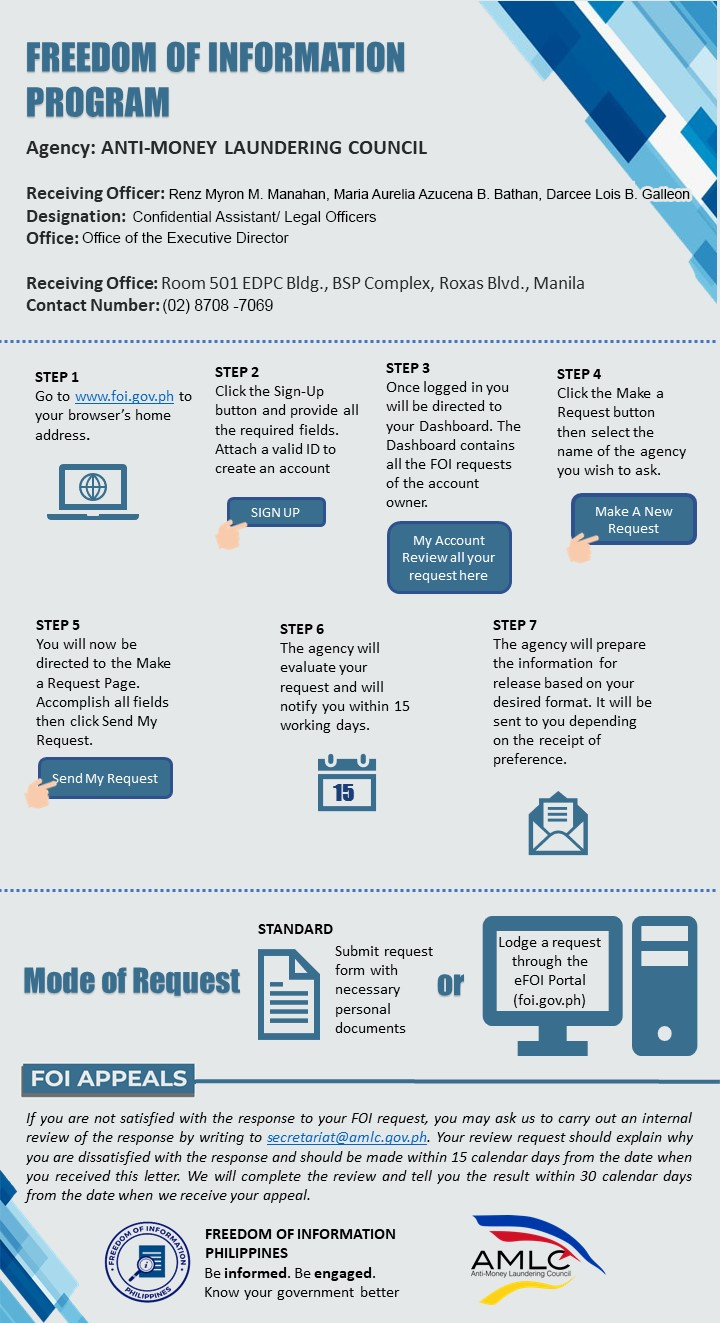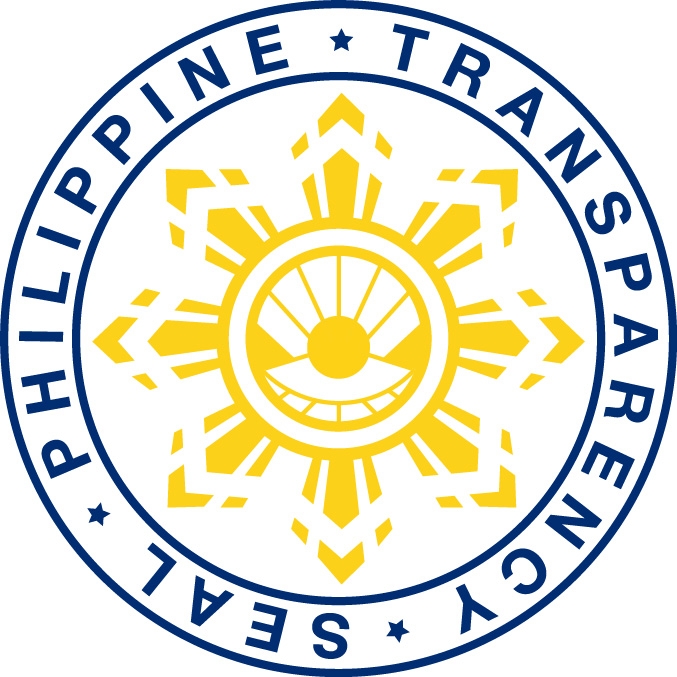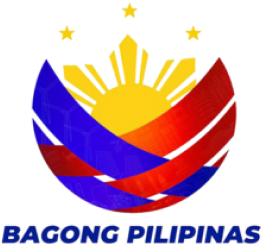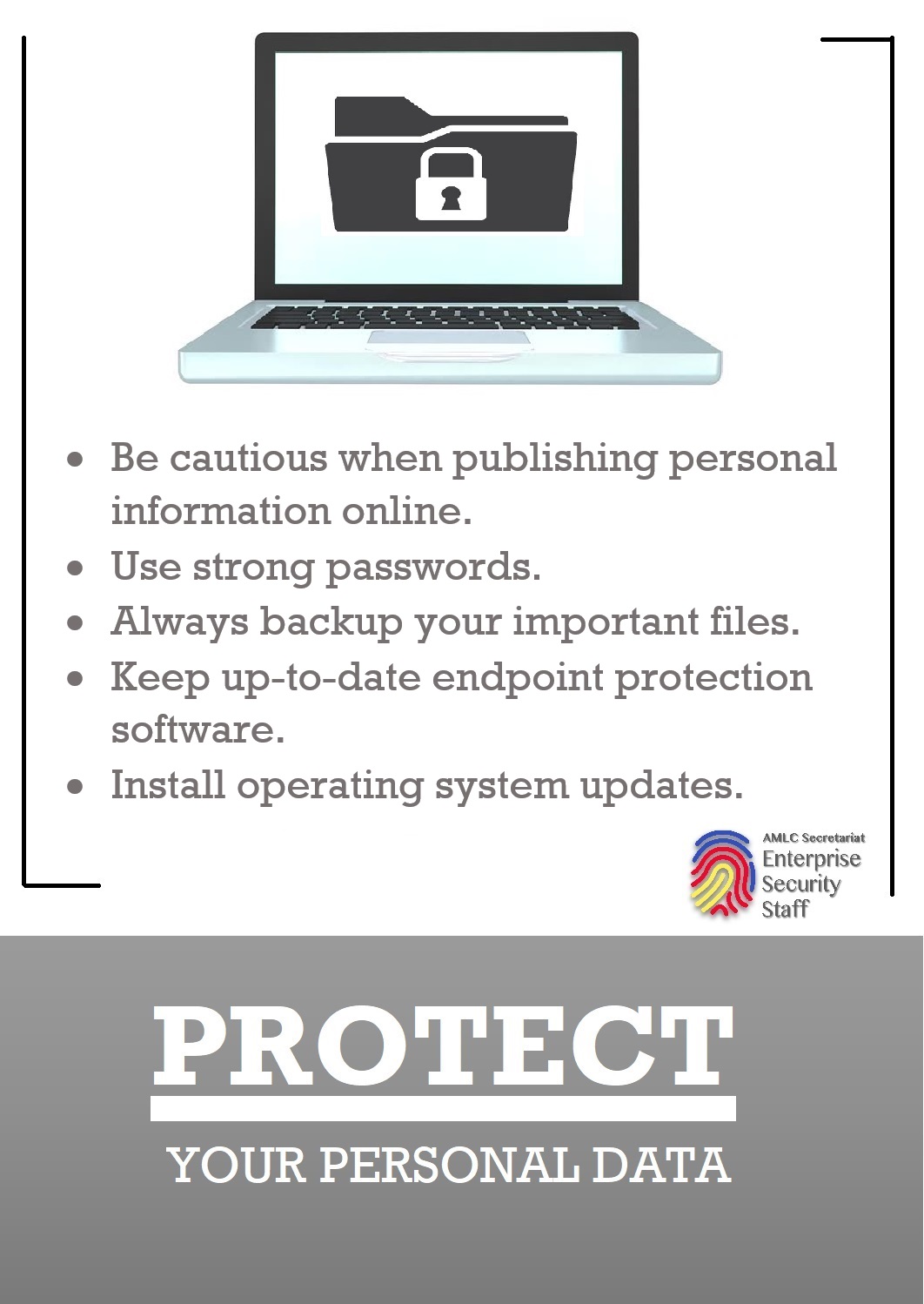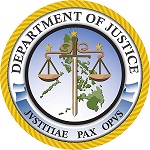AMLCS issues Operational Guidelines in the Conduct of the 2018 Third Round Mutual Evaluation of the Philippines
Executive Director Mel Georgie B. Racela of the Anti-Money Laundering Council (AMLC) Secretariat issued AMLC Letter No. AMLET-18-03 dated 20 April 2018, providing for Operational Guidelines in the Conduct of the 2018 Third Round Mutual Evaluation of the Philippines. He issued the Guidelines pursuant to the Memorandum dated 22 February 2018 of Executive Secretary Salvador C. Medialdea, as authorized by President Rodrigo R. Duterte.
The Guidelines aim to (a) create an inter-agency Mutual Evaluation (ME) Working Group (WG) and sub-working groups (SWGs); (b) enumerate the functions and obligations of the member-agencies with respect to the ME process; (c) outline the ME process and provide guidance as to the different components of the process; (d) provide timelines for the ME process and ME-related activities; (e) enumerate effects of a “non-compliant” or “poor” ME; and (f) lay down the framework towards the adoption of a National AML/CFT Policy Strategy. The Guidelines are addressed to all participating government agencies and other entities.
The Mutual Evaluation (ME) is a government-wide concern as what will be assessed is the compliance of the Philippines with the Financial Action Task Force (FATF) Forty Recommendations and the effectiveness of its anti-money laundering/counterfinancing of terrorism (AML/CFT) regime. The entire ME process spans two (2) years, and will require the support and active participation of various government agencies, including supervisory authorities, law enforcement agencies, and public and private stakeholders. The Philippines will be evaluated by a pool of experts from Financial Intelligence Units (FIUs) from other member-jurisdictions of the Asia-Pacific Group on Money Laundering (APG), pursuant to the APG’s membership rules.
The Philippines has undergone MEs in 2003 and 2008. This 2018, the Philippines will undergo the Third Round ME. In 2008, the Philippines underwent the Second Round ME, in which its technical compliance with the FATF Recommendations was assessed. The Philippines was rated poorly due to major shortcomings in the country’s AML/CFT legal framework. Consequently, the Philippines was placed in the FATF’s “grey list” and deemed a “high risk” jurisdiction. It was subjected to the FATF’s International Cooperation Review Group (ICRG) process. With the passage of Republic Act No. 10365, introducing significant reforms in the Anti-Money Laundering Act of 2001 (AMLA), the Philippines was removed from the “grey list” and the list of ICRG-monitored jurisdictions.
Since 2013, the Philippines has made significant improvements in its AML/CFT regime, including the passage of RA No. 10927, which included casinos as covered persons, the adoption of the Rules on the Imposition of Administrative Sanctions, amendment of the AMLA’s implementing rules and regulations, and the adoption of codified registration and reporting guidelines, to name a few. The Philippines is targeting a favorable rating for both technical compliance and effectiveness standards.
For the full text of AMLC Letter No. AMLET-18-03, click here.
Annex B: Scope and members of the different Sub-Working Groups (SWG), click here


 REVISED 2 3.jpg)

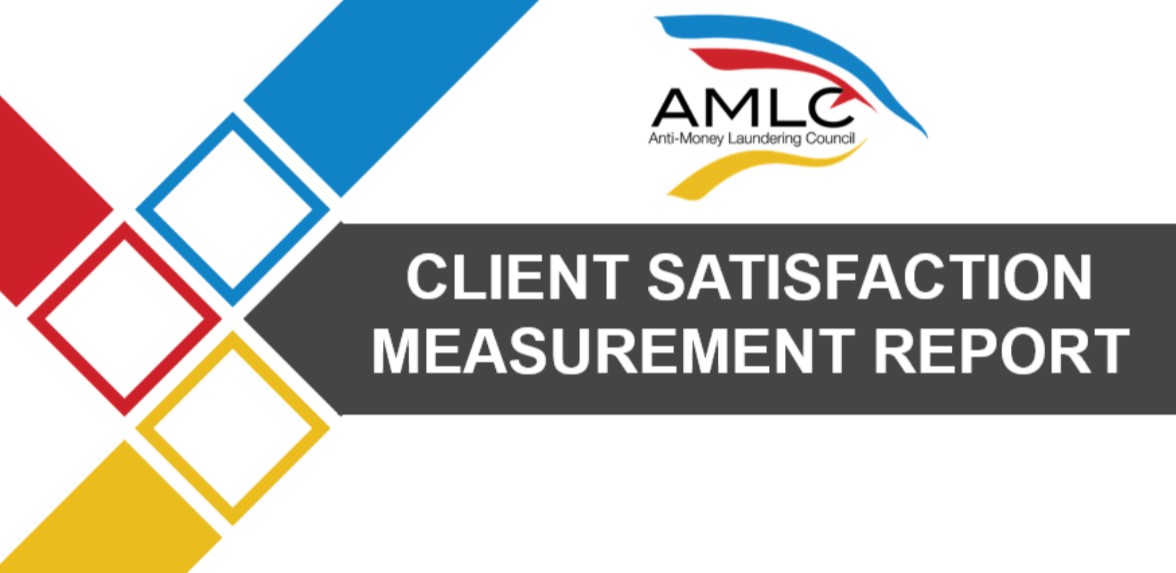 2024 (First Edition)
2024 (First Edition)